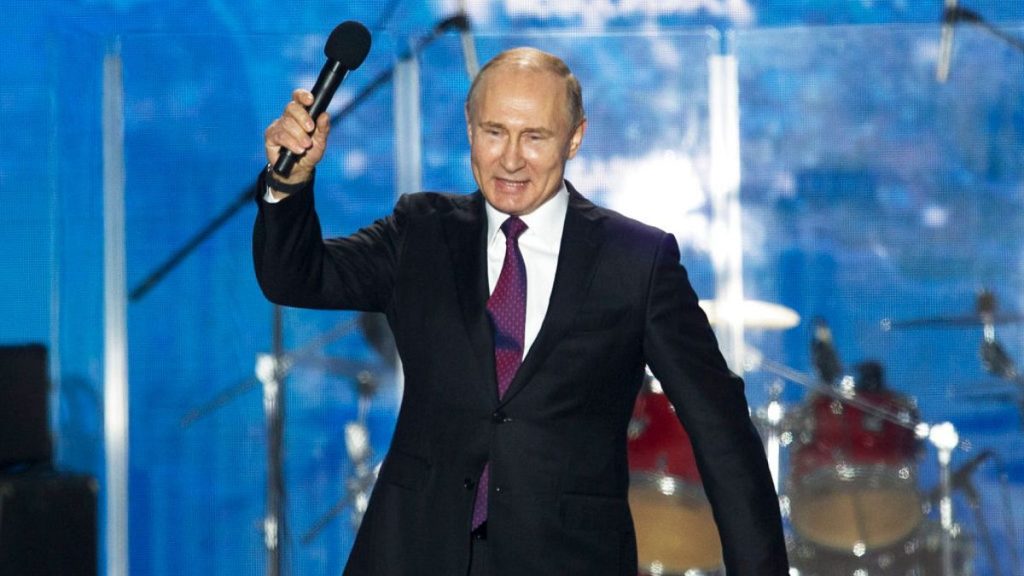The resurgence of Intervision, a relic of the Soviet era, marks a stark cultural and political maneuver by Russia, directly challenging the established dominance of the Eurovision Song Contest. Conceived during the Cold War, Intervision served as a platform for Eastern Bloc nations to showcase their musical talents within a controlled environment, contrasting sharply with the more open and diverse nature of Eurovision. This revival, slated for Moscow later this year, is not merely a nostalgic trip down memory lane but a deliberate attempt by President Vladimir Putin to champion “traditional values” and offer an alternative narrative to the perceived liberal agenda of Eurovision.
The timing of Intervision’s revival is no coincidence. Following Russia’s exclusion from Eurovision in 2022, a consequence of the nation’s invasion of Ukraine, the Kremlin has sought avenues to reassert its cultural influence and project its values on the global stage. Eurovision, with its embrace of LGBTQ+ representation and celebration of diversity, symbolized everything that Putin’s regime opposes. Intervision, therefore, becomes a tool to promote a contrasting ideology, emphasizing “traditional universal, spiritual, and family values.” This deliberate counter-programming aims to establish a distinct cultural sphere, one that aligns with Russia’s conservative principles and rejects what it deems the “decadent” influences of the West.
The original Intervision Song Contest, initiated under Leonid Brezhnev, ran intermittently between 1965 and 1980, hosted primarily in Czechoslovakia and Poland. While mirroring the Eurovision format with participating countries sending representatives to compete, Intervision maintained a distinct political undertone, reflecting the ideological divisions of the Cold War. However, the contest wasn’t entirely closed off to the West, with occasional participation from countries like the Netherlands and Spain. Finland’s victory in the final 1980 edition further underscores the complexities of the era, highlighting the nuances of cultural exchange even within a politically charged context.
The 1980 Intervision contest, held in Sopot, Poland, stands as the last iteration before its demise, brought about by the rising political tensions of the time. The burgeoning Solidarity movement in Poland and growing unrest within the Warsaw Pact nations destabilized the region, making the continuation of a collaborative cultural event untenable. The contest’s cancellation mirrored the broader fragmentation within the Eastern Bloc, foreshadowing the eventual collapse of the Soviet Union. Now, over four decades later, Russia’s attempt to resurrect Intervision signals a desire to rebuild a sphere of influence and project a sense of unity among nations aligned with its geopolitical vision.
The Kremlin’s assertion that “almost 20 countries” are poised to participate in the revived Intervision suggests a concerted effort to establish a broad coalition of nations willing to engage in this alternative cultural platform. The inclusion of BRICS and CIS members like China, India, and Brazil, nations that haven’t participated in Western sanctions against Russia, indicates a strategic alignment aimed at solidifying diplomatic ties and building alliances outside the traditional Western sphere. While North Korea’s potential participation remains uncertain given its existing involvement in the Own Asiavision Song Contest, the overall lineup underscores Russia’s ambition to create a significant international event that can rival Eurovision’s reach and influence.
This is not Russia’s first attempt to revive Intervision. In 2014, following Conchita Wurst’s Eurovision victory, which was met with disapproval by Russian officials who criticized the perceived “moral decay” of the competition, Moscow announced plans to relaunch the contest in Sochi. However, that initiative failed to materialize. The current resurgence of Intervision, against the backdrop of the ongoing conflict in Ukraine and increasing tensions with the West, takes on a more pronounced political significance. It represents not only a cultural counterpoint to Eurovision but also a symbolic assertion of Russia’s determination to forge its own path and establish a sphere of influence independent of Western institutions and values. The contest, scheduled for this autumn in Moscow, is poised to become a key arena for showcasing Russia’s cultural vision and reaffirming its political alliances in a changing global landscape.














